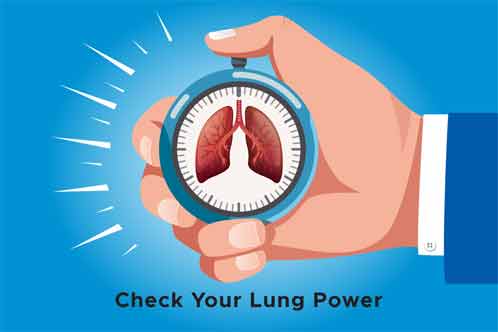It is important to know that height does affect lung capacity. The taller you are, the more distance there is between your rib cage and your pelvic bone. This affects the size of the chest cavity, which in turn reduces lung capacity.
The lungs themselves may also be affected by height as they rest on the diaphragm muscle within the ribcage. Taller people have a larger space for their lungs to fill with air before they contract again, shorter people’s lungs will contract sooner because their ribs come closer together right above where it rests below them.
What is the capacity of the lungs?

Lungs are respiratory system organs, do things like exchange oxygen and carbon dioxide. The lungs are made up of spongy tissue that is acted upon by the muscles in order to push air into them. The capacity of the lungs can also be reduced if there is any disease like asthma, bronchitis, emphysema or cancer. The capacity of the lungs for example is between 3 and 4 liters.
What can affect the capacity of the lungs?
The following factors can affect the capacity of the lungs:
1. Height: You have more distance between your rib cage and pelvis if you’re tall. This affects the size of the chest cavity, which in turn reduces lung capacity.
2. Presence or absence of chronic diseases: Diseases like asthma, bronchitis, emphysema and cancer can reduce the capacity of the lungs up to 50%.
3. Body surface area: The more you weigh, the larger your body will be. This reduces the lung capacity.
4. Temperature of ambient air: If temperature outside is low, it is harder for heat to leave the body and this will reduce lung capacity.
5. Food intake: If there is insufficient oxygen, muscles do not work properly and if your lungs are deprived of oxygen for a long time, they become less efficient in supplying the body with oxygen.
6. Body temperature: When people exercise in cold weather, their bodies tend to cool down and in order to maintain the body temperature, their breathing and heart rates increase and this reduces lung capacity.
How height affects lung capacity?
The height of a person does affect their lung capacity. Taller people have more distance between their rib cage and their pelvic bone. This affects the size of the chest cavity, which in turn reduces lung capacity. Lung volume is important because it allows more air to enter the lungs, expanding them fully. According to a study published in 2004 by Martina Faller and Klaus Dietz in “High Altitude Medicine & Biology,” having a taller body makes your legs lighter than your trunk and head, assuming that all other factors are equal. When all else is equal, the lungs have less restriction because of this lack of weight and restriction from the bones by being so far apart. The distance between your rib cage and your pelvic bone affects the size of the chest cavity, which in turn reduces lung capacity, https://regiondigital.com/noticias/reportajes/346482-airphysio-opiniones-lanzamiento-de-un-nuevo-dispositivo-de-terapia-respiratoria.html.
Why it’s important to know about this?
It’s important to know that height does affect lung capacity. If you’re taller, your lungs have less room and the air in them is used more quickly. As you get taller, your rib cage and pelvis get farther apart. This affects how much oxygen your body can absorb from each breath.
On average, people who are shorter than 5’4″ (1.6 m) have about 1 liter more air in their lungs than taller people of the same weight do. However, that can be enough to make a difference between life and death during an asthma attack because it means your body won’t get as much oxygen.
Conclusion
We all know that height affects lung capacity, but do you really know why? The answer is actually pretty neat. It’s because your lungs are a lot bigger when you’re born and as we grow taller they don’t have to work as hard! Our bodies use our bones for support, so the more weight on them from being tall means there isn’t as much strain on our respiratory system. For those of us who aren’t quite ready to be dwarfs yet, it’s important to take care of ourselves by eating well and getting plenty of exercise every day! Looking at these facts may make going through growth spurts a little easier knowing how lucky we are.

